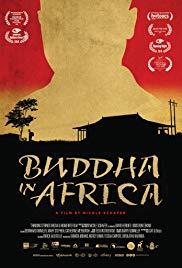| Buddha in Africa | |
|---|---|
 | |
| Directed by | Nicole Schafer |
| Screenplay by | Nicole Schafer |
| Based on | Buddhism in Africa |
| Produced by | Nicole Schafer |
| Starring | Enock Alu |
| Cinematography | Nicole Schafer |
| Edited by | Nicole Schafer |
Release date |
|
Running time | 110 minutes |
| Countries | South Africa Sweden |
| Languages | English Chinese Mandarin |
Buddha in Africa is a 2019 South African Swedish documentary film produced, written and directed by Nicole Schafer. [1] [2] The film follows the story of Enock Alu, a Malawian orphan from a rural village growing up between the contrasting African culture and the strict discipline of the Confucian, Buddhist value of system of the Chinese. [3] [4] It explores the impact of the growing influence of Chinese culture in Malawi following increasing trade relations between China and Africa in the past decade. [5]
Contents
The principal photography of the film commenced in 2012 and had a delayed release in 2019. The film had its world premiere at Hot Docs Canadian International Film Festival in April 2019. [6] It has since screened and won awards at numerous festivals around the world. [7]